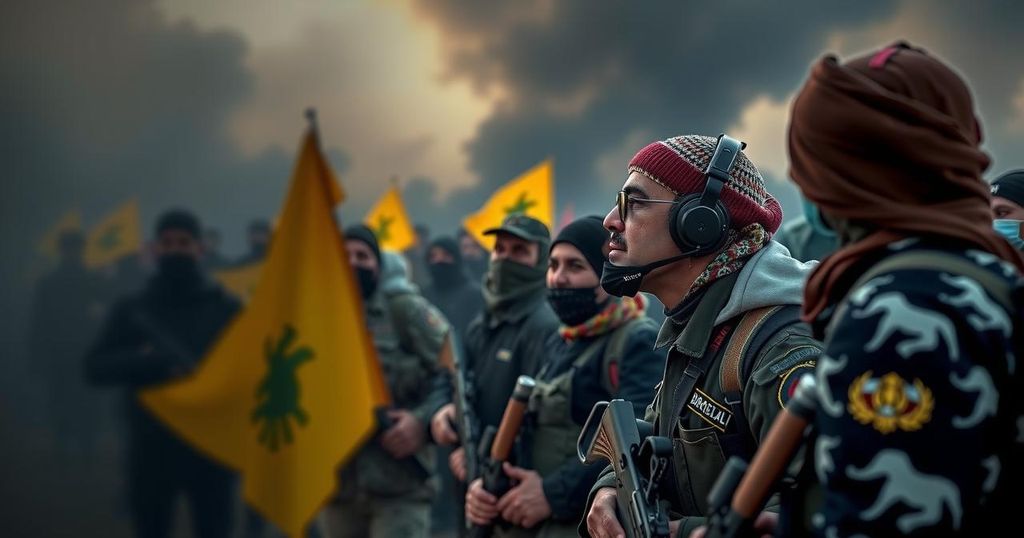After enduring a year of conflict, Hezbollah has entered a cease-fire with Israel, reflecting its weakened and isolated state. The prolonged war resulted in significant losses, including key leadership and operational strongholds, while intensifying calls for reconstruction in Lebanon. The organization’s historical claims of defense and military prowess have been thoroughly challenged, raising doubts about its future political influence amidst potential shifts among rival factions.
Following an extended period of conflict, Hezbollah has agreed to a cease-fire with Israel, marking a significant shift in its military standing. The prolonged 13-month war has severely diminished Hezbollah, dismantling the once-prominent narrative that positioned the organization as the ultimate protector of Lebanon against Israeli aggression. The recent 60-day truce, while aimed at establishing a framework for a more permanent peace, comes on the heels of relentless Israeli offensives that have wreaked havoc on Hezbollah’s infrastructure and morale.
Hezbollah’s reputation was previously bolstered by claims of military superiority and unforeseen strategies. However, the realities of the war revealed vulnerabilities exacerbated by effective Israeli intelligence operations, resulting in the assassination of key leaders and the destruction of numerous strongholds. The extensive bombardments have led to mass displacements and infrastructural ruin within communities loyal to Hezbollah, undermining its claims of protection and support.
Moreover, Hezbollah’s unilateral decision to launch rockets at Israel catalyzed a conflict that spiraled into a devastating war, leaving the organization politically isolated both domestically and regionally. This isolation raises questions about its future influence over Lebanon’s complex political landscape, particularly as calls for reconstruction mount following the extensive damage inflicted upon the country. The prevailing hope among Hezbollah’s detractors is that the group’s weakened state will prove insufficient for it to maintain its historical dominance in Lebanese politics.
The effectiveness of other political factions in countering Hezbollah’s influence remains uncertain, positioning Lebanon at a crossroads as it considers the pathway to recovery in a post-conflict context.
Hezbollah, a Shiite militant group based in Lebanon, has positioned itself for decades as a significant power in Lebanese politics, claiming it is the sole entity capable of defending the country against Israeli military incursions. Historically, Hezbollah has celebrated its military successes against Israel while asserting that its resistance is bolstered by support from various Iranian-backed militias throughout the region. However, this narrative has faced challenges, particularly as the ongoing conflict has led to severe consolidations of power from adversaries who see an opportunity to diminish Hezbollah’s political role following its recent military stalemate.
In summary, Hezbollah’s acceptance of a cease-fire after a protracted conflict underscores its weakened state and the challenges it faces in asserting its influence in Lebanon. The extensive damage suffered due to Israeli operations and the resultant isolation present a pivotal moment for Lebanese politics. The potential shift in power dynamics leaves open questions regarding Hezbollah’s future strength in a country that now confronts the immense task of reconstruction and reestablishing political equilibrium.
Original Source: www.nytimes.com






